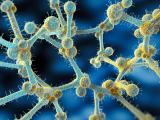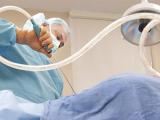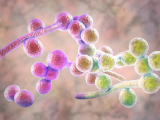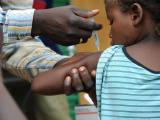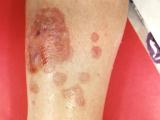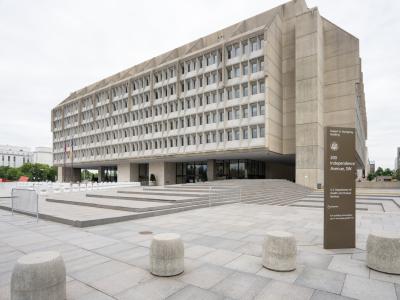Nov 2, 2012 (CIDRAP News) – Tests by federal health officials have detected bacterial contamination in two products from the Massachusetts compounding pharmacy linked to a multistate fungal meningitis outbreak caused by tainted steroid drugs, a finding that amplifies worries about the sterility of the company's products.
The US Food and Drug Administration (FDA) said the two drugs—preservative-free betamethasone and cardioplegia solution—are already included in an Oct 6 recall by New England Compounding Center, Framingham, Mass., of all of its products.
Tests confirming contamination in the two drugs triggered a warning yesterday from the Centers for Disease Control and Prevention (CDC) to health providers. In a Health Alert Network (HAN) advisory the CDC said the tests found several Bacillus species and related species in unopened vials of the two drugs.
Meanwhile, the CDC said today in its fungal meningitis outbreak update that the number of infections linked to NECC's contaminated methylprednisolone acetate has risen to 404, 18 more than reported yesterday. One more patients has died, raising that total to 29. The number of affected states held steady at 19, and the number of peripheral joint infections remained at 9.
Detailing the latest contamination findings, the FDA said its own and CDC labs found bacteria in three lots of the steroid betamethasone, with each lot yielding different organisms that included Paenibacillus bapuli/amolyticus, Bacillus idriensis, Bacillus flexus, Bacillus simplex, Lysinibacillus, Bacillus niabensis, Bacillus circulans, and Bacillus lentus.
In samples of cardioplegia solution, used to stop the heart during cardiac surgery, tests identified Bacillus halmapalus and Brevibacillus choshinensis.
The FDA said the clinical significance of the bacterial findings isn't known, and B idriensis and B circulans have rarely been reported to cause human infections. The CDC said in its HAN alert that the bacteria found in the two drugs are commonly found in the environment, but it's not known how product contamination with the species might affect patients.
The CDC is continuing to investigate reports of possible infections in patients who received other NECC products, but so far it has not received any reports of lab-confirmed infections from Bacillus or closely related organisms linked to NECC's betamethasone or cardioplegia solution, according to the statement.
It added that fungal tests results on the two additional drugs are pending, and for now, federal officials can't rule out further contamination in the two drugs.
The FDA said the findings reinforce its concerns about the lack of sterility of drugs produced at NECC's facility and reinforce its warning that hospitals, clinics, and health providers should not use any NECC products.
Early in the outbreak the FDA aired concerns about the sterility of other NECC products beyond the three lots of injectable methylprednisolone actetate that have been linked to the fungal infections, which prompted an Oct 15 safety alert about NECC's ophthalmic drugs and cardioplegic solution.
In a related development, the CDC yesterday sent another HAN advisory to clinicians that spelled out the details of an Oct 31 recall of all products from a second compounding pharmacy, Ameridose, based in Westborough, Mass. The products haven't been linked to any illnesses, but in its recall notice Ameridose said as a result of an ongoing inspection, the FDA has notified the company that it will ask for improvements in its sterility testing process. So far tests haven't detected contamination in any Ameridose products.
The CDC said some products on the Ameridose recall list are on the nation's critical drug shortage list. It added that the products were in short supply before the recall, but the recall may further affect access to the drugs. The agency said it was taking steps to address the shortages, such as working with other manufacturers to maintain supplies.
In the wake of the new developments, Rep. Edward Markey, D-Mass., yesterday announced details about legislation he planned to introduce today that would strengthen federal oversight of compounding pharmacies. In a statement, Markey described his proposed Verifying Authority and Legality in Drug (VALID) Compounding Act, which he said would, for example, preserve state regulatory authority over smaller, more traditional compounding pharmacies but ensure that those operating as drug manufacturers are regulated by the FDA as are other drug manufacturers.
Earlier this week Markey released a report from his staff on problems with compounding pharmacies that preceded the current outbreak. The report linked the problems to at least 23 deaths and 86 illnesses in 34 states over the past decade.
See also:
Nov 1 FDA statement
Nov 2 CDC outbreak update
Nov 1 CDC HAN advisory on bacteria findings
Nov 1 CDC HAN advisory on Ameridose recall
Nov 1 Rep Markey statement
Oct 29 CIDRAP News story "Report: Deaths, illnesses linked to compounding pharmacies not new"
